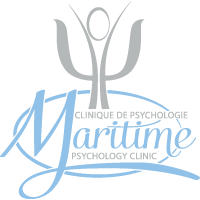Learn More About ADHD in Adults
Tanya Monger, M.A.Ps., L.Psych.
Psychologist
Attention deficit hyperactivity disorder (ADHD)
affects about 5% of children, and about ½ to ⅔ of them will carry those symptoms into adulthood. On top of that, many adults with ADHD have never been diagnosed (CADDRA, 2017).
Untreated ADHD can cause numerous mental problems that can put a strain on relationships and cause difficulties in many aspects of everyday life (which also leads to a higher number of substance abuse, divorce rate, anxiety disorders and depression). It’s important to recognize the signs of adult ADHD so you can get proper treatment.
Adult ADHD Symptoms May Include:
- Lack of focus (being easily distracted; finding it hard to listen to others in a conversation; overlooking details; doesn’t pay close attention to details or makes careless mistakes in school or job tasks)
- Impulsivity (interrupting others during conversation, being socially inappropriate, impulsive buying)
- Disorganization, problems prioritizing and poor planning
- Poor time management skills (Adult with ADHD may procrastinate on important tasks, show up late for important events, or ignore assignments they consider boring)
- They are often forgetful, which in turn can be damaging to careers and relationships because it can be confused with carelessness. They often forget to return phone calls, pay bills and keep appointments)
- They may or may not show signs of hyperactivity. Manifests in terms of excessive activity or restlessness (Fidgets with or taps hands or feet, or squirms in seat, not able to stay seated (in classroom, workplace), always “on the go,” as if driven by a motor, talks too much, blurts out an answer before a question has been finished (for instance may finish people’s sentences, can’t wait to speak in conversations), has difficulty waiting his or her turn, such as while waiting in line, interrupts or intrudes on others (cuts into conversations)
- Low frustration tolerance and difficulty modulating emotions (anger management problems, often seen has having a hot temper)
- Problems following through and completing long term tasks
- Often seen as lazy or unmotivated
Many adults with ADHD do not realize they have the disorder. An ADHD assessment typically includes a review of past and current symptoms, the use of adult rating scales or checklists (for self and other family members), psychometric testing (to measure working memory and processing speed) and psychometric interviewing methods. Adults with ADHD are treated with medication, psychotherapy or a combination of the two. Behavior management strategies, such as ways to minimize distractions and increase structure and organization, and involving immediate family members can also be helpful.
What Causes ADHD?
Researchers have not yet identified the specific causes of ADHD. However, there is evidence that genetics contribute to ADHD. For example, 3 out of 4 children with ADHD have a relative with the disorder. Other factors that may contribute to the development of ADHD include being born prematurely, brain injury and the mother smoking, using alcohol or having extreme stress during pregnancy.
I Might Have ADHD…..What Is Next?
You can learn more about the disorder and the process of psychological assessment by contacting a psychologist who specializes in adult ADHD or ask for help from your family doctor.
Learn More
You can learn more about Adult ADHD by visiting the Canadian ADHD Resource Alliance (CADDRA)
website.
Interesting Reading
- Taking Charge of Adult ADHD, R. Barkley (1995)
- You Mean I'm Not Lazy, Stupid or Crazy?! A Self-Help Book for Adults with Attention Deficit Disorder by K. Kelly and P. Ramundo
- My Brain Still Needs Glasses, A. Vincent (2011)


